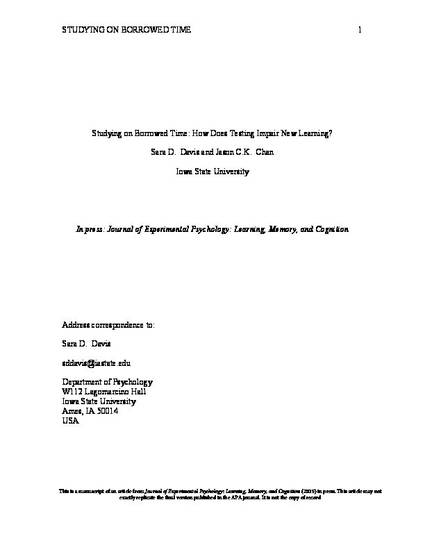
Retrieving studied materials often enhances subsequent learning of new materials (Pastötter & Bäuml, 2014). However, retrieval has also been shown to impair new learning (Finn & Roediger, 2013). Here we attempted to determine when retrieval enhances and when it impairs new learning. We argue that testing impairs new learning when one intermixes testing with new learning, which biases participants to relearn the tested information at the expense of the new information. We refer to this as the borrowed time hypothesis. Consistent with this idea, we reduced or eliminated testimpaired new learning by discouraging time borrowing. Moreover, testing enhanced new learning only when the test trials and new learning trials were presented in separate blocks. These results suggest that test-impaired new learning and test-enhanced new learning are based on different underlying mechanisms, and that they are not simply the flipped side of the same coin.
Available at: http://works.bepress.com/jason_chan/21/

This is a manuscript of an article from Journal of Experimental Psychology: Learning, Memory, and Cognition (2015) in press. This article may not exactly replicate the final version published in the APA journal. It is not the copy of record.